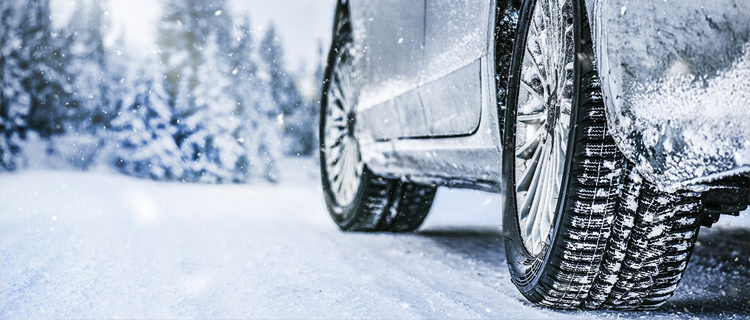What Are The Best All Weather Tires For Snow And Ice In 2021?
March 29, 2021
Tires

Today’s post explains why so many Canadians trust all-weather tires to keep them safe year-round, then shares some top consumer picks for “best all-weather tires for snow and ice” in 2021.
Read on or contact your local TIRECRAFT for personalized recommendations for the best all-weather tires for snow and ice in your area.
Best Year-Round Tires: Why Choose All-weather Tires For Snow And Ice And More
With the exception of sports cars and similar high-performance rides, almost all vehicles sold in Canada come with all-season tires. And while these tires strike a fine balance between warm and cold-weather handling, some drivers demand more to get through Canadian winters—more braking power in snow, more grip on ice, and more confidence on the road, all without having to switch over to a specialty winter set or compromise summer performance.
Enter the all-weather tire, the perfect solution for drivers who demand year-round performance with enhanced winter capabilities.
These are just a few of the features that make all-weather tires work wonders in snow and ice:
- Increased sipe density on the inside treads
- Lower sipe density on the outside treads
- Snow claws
- Increased block rigidity
- Slush grooves
- Multi-wave sipes
- Slush edges and polished grooves
- Increased stability
- Unique rubber compound containing silica for all-weather grip
The superior winter performance of all-weather tires is borne out by several studies. For instance, while measuring the average distances that it took for a car to reach 32km/h in “moderately packed snow,” Consumer Reports found that all-weather tires required about 64 feet to get up to speed—only 6 feet more than dedicated winter/snow tires. In contrast, all-seasons took between 76 and 90 feet. What’s more, in some cases, Consumer Reports found that “new all-weather tires outperform some snow tires.”
All-weathers often outperform all-seasons in warm conditions, too, whether the roads are wet or dry. According to one study cited by Driving.ca, the average all-weather tire stops 77cm sooner on wet pavement and 33cm sooner on dry pavement when compared to all-season alternatives.
The only real downside of all-weather tires is that they won’t last as long as dedicated seasonal sets. But that’s to be expected, since you’re putting them to work year-round.
What Are The Best All-Weather Tires For Snow And Ice In 2021?
If you’re not ready to speak with your local TIRECRAFT, the surest way to locate the best all-weather tires for snow and ice is to source recommendations from authoritative non-profit associations dedicated to promoting consumer interests in the marketplace, like the Automobile Protect Association (APA), Consumer Reports, or Cansumer, a Canadian offshoot.
Some of the top picks from these organizations include:
- The General Tire Grabber A/TX
- The Toyo Celsius CUV
- The Firestone Weathergrip
- Michelin’s Agilis Cross Climate
At the end of the day, crowning the “best” tire is impossible without factoring in the individual’s budget, driving habits, and local weather conditions. But no matter what’s best for you, you’ll find it at your local TIRECRAFT.
Use the Find a TIRECRAFT tool to start a free consultation and get personalized recommendations on the best all-weather tires for snow and ice.
Back

